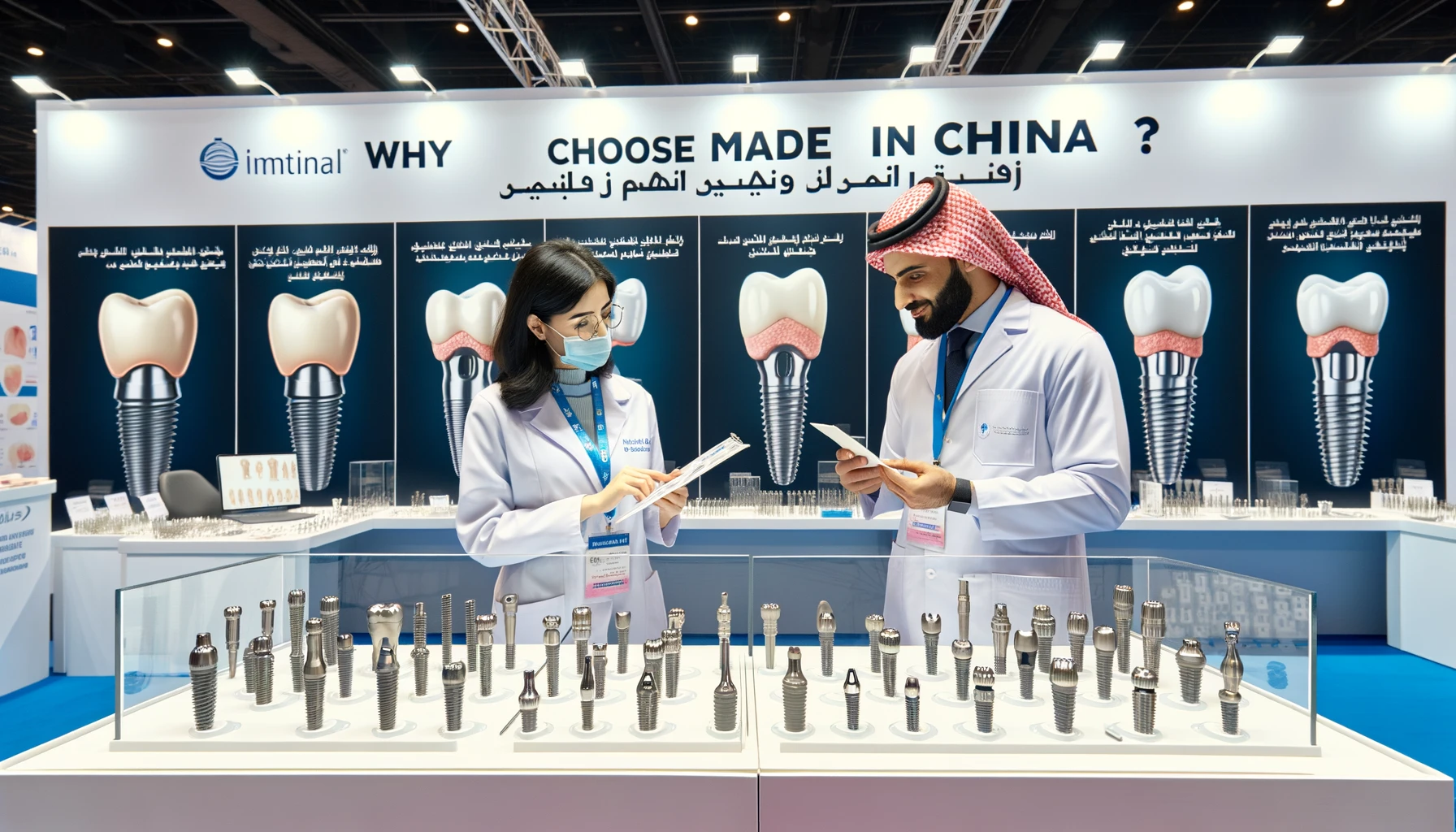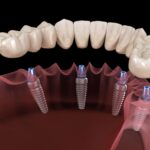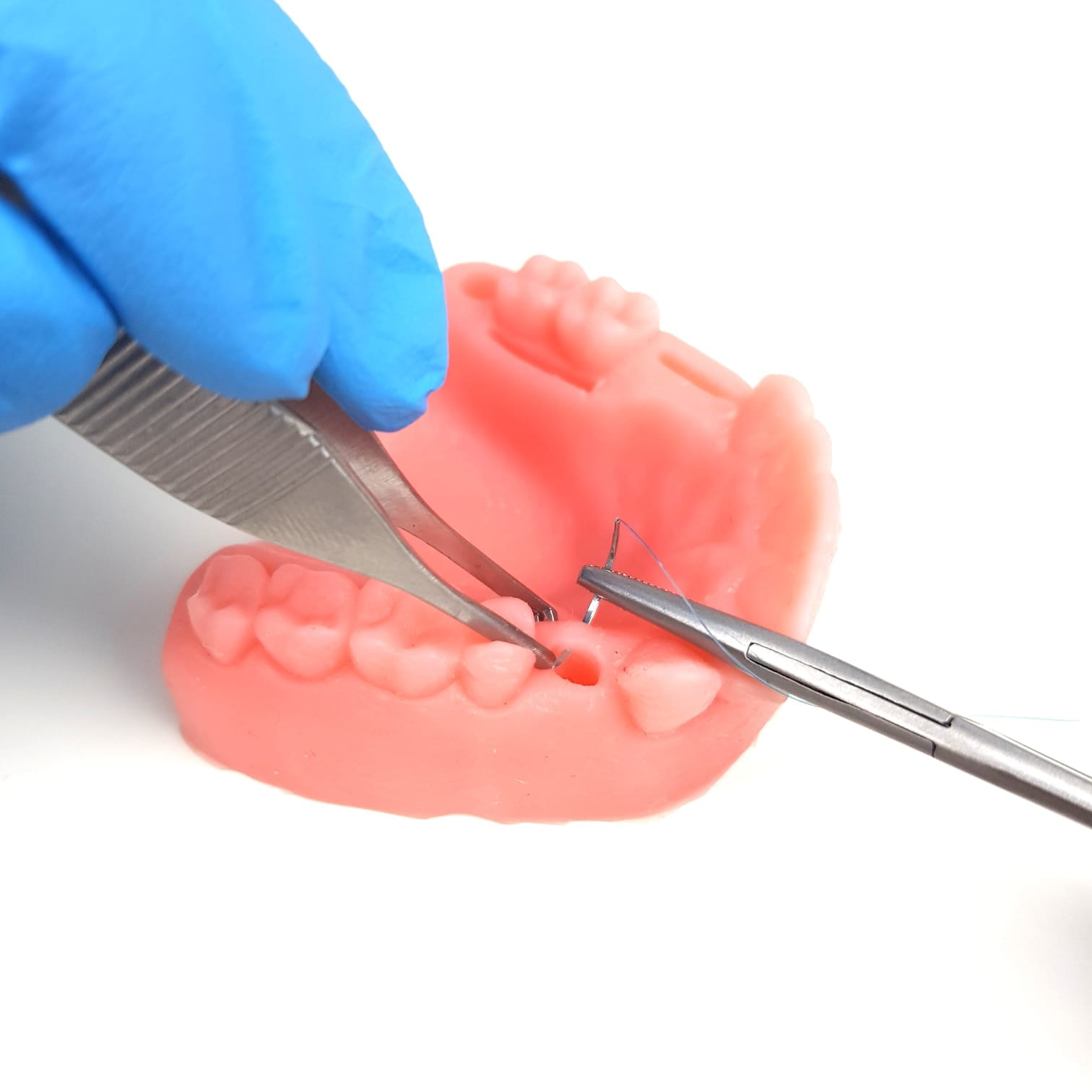China has rapidly become a top destination for dental tourism, attracting patients from around the globe with its state-of-the-art facilities and affordable prices. Did you know that dental procedures in China can cost up to 70% less than in countries like the United States? If you’re considering dental implants, you’re not alone in seeking high-quality care at a fraction of the price.
In this guide, you’ll uncover essential insights into the best clinics, innovative techniques, and what to expect regarding costs. We promise to equip you with the knowledge you need to make informed choices about your dental health.
Are you ready to transform your smile without breaking the bank? Let’s dive into everything you need to know about securing top dental implants in China!
Understanding Dental Implants: A Comprehensive Guide
Dental implants are artificial tooth roots surgically placed into the jawbone to support replacement teeth. These titanium posts fuse with the bone through osseointegration, creating a stable foundation for new teeth. Dental implants consist of three parts: the implant body (inserted into the bone), the abutment (connects the implant to the crown), and the crown (the visible part that resembles a natural tooth).
How Do Dental Implants Work?
- Evaluation: A dentist assesses oral health and jawbone density
- Implant placement: The titanium post is surgically inserted into the jawbone
- Osseointegration: The implant fuses with the bone over 3-6 months
- Abutment attachment: A connector is placed on the implant
- Crown placement: A custom-made artificial tooth is attached to the abutment
Benefits of Choosing Dental Implants
Dental implants offer numerous advantages over traditional tooth replacement methods:
- Preserve jawbone density: Implants stimulate bone growth, preventing deterioration
- Function independently: Unlike bridges, implants don’t rely on adjacent teeth for support
- Natural appearance: They closely resemble natural teeth in look and feel
- Restore full chewing power: Implants allow normal biting and chewing functions
- Long-term solution: With proper care, implants can last a lifetime
- Improve oral health: They don’t require altering healthy teeth, as with bridges
Advancements in Dental Implant Technology
Recent innovations have significantly improved dental implant procedures:
3D Imaging and Digital Planning
Advanced 3D imaging and planning software enable precise visualization of jawbone structure, allowing dentists to plan and execute implant placement with unprecedented accuracy. This technology has reduced procedure times and improved outcomes.
Minimally Invasive Techniques
Keyhole surgery and other minimally invasive approaches have made implant procedures more accessible. These techniques reduce recovery time and minimize complications, benefiting a broader range of patients.
Biocompatible Materials
The use of zirconia alongside traditional titanium offers improved biocompatibility and aesthetic outcomes. These materials enhance implant integration with surrounding tissues and reduce allergic reaction risks.
Comparing Dental Implants to Other Tooth Replacement Options
| Feature | Dental Implants | Bridges | Dentures |
|---|---|---|---|
| Longevity | 25+ years | 5-15 years | 5-8 years |
| Bone Preservation | Yes | No | No |
| Natural Look and Feel | High | Moderate | Low |
| Maintenance | Easy | Moderate | High |
| Impact on Adjacent Teeth | None | High | None |
The Dental Implant Procedure: What to Expect
- Initial Consultation: Your dentist will evaluate your oral health, take X-rays, and discuss your options.
- Treatment Planning: A customized plan is created based on your specific needs and jawbone condition.
- Implant Placement: The titanium post is surgically inserted into your jawbone under local anesthesia.
- Healing Period: Over 3-6 months, the implant fuses with your bone through osseointegration.
- Abutment Placement: Once healed, a small connector post (abutment) is attached to the implant.
- Crown Attachment: Finally, a custom-made crown is secured to the abutment, completing your new tooth.
Caring for Your Dental Implants
Proper maintenance ensures the longevity of your dental implants:
- Brush twice daily with a soft-bristled toothbrush
- Floss daily, using implant-specific floss or water flossers
- Rinse with an antimicrobial mouthwash
- Attend regular dental check-ups and professional cleanings
- Avoid smoking and limit alcohol consumption
Cost Comparison
One of the main attractions of getting dental implants in China is the significant cost savings compared to Western countries. On average, prices in China are 50-75% lower without compromising on quality.
| Procedure | China (USD) | United States (USD) |
|---|---|---|
| Single Implant | $800 – $1,200 | $3,000 – $6,000 |
| Full Mouth Restoration | $6,000 – $10,000 | $30,000 – $90,000 |
| Bone Grafting | $500 – $1,500 | $2,000 – $3,000 |
| Sinus Lift | $800 – $1,200 | $1,500 – $3,000 |
Prices are estimates and may vary based on specific clinics and case complexity.
Many clinics also offer bundled packages that include comprehensive treatment options along with financing plans to make procedures more accessible.
Top Destinations for Dental Implants in China
China has emerged as a leading destination for dental implants, offering high-quality care at competitive prices. The dental implants market in China is experiencing significant growth, with a projected compound annual growth rate (CAGR) of 6.94% from 2022 to 2027, reaching an estimated value of USD 200.39 million by 2027. This growth is driven by technological advancements, increasing awareness of oral health, and the rising popularity of medical tourism.
Beijing: The Capital of Dental Excellence
Beijing, China’s capital, stands out as a premier destination for dental implant procedures. The city boasts world-class facilities and internationally trained professionals.
Peking University School and Hospital of Stomatology
This renowned institution is at the forefront of dental implant technology in China. Known for its expert implantologists and use of premium Straumann implants, the hospital offers cutting-edge technology and maintains high standards of care. Patients can expect:
- State-of-the-art facilities
- Experienced professionals with international training
- Use of advanced implant materials like titanium and zirconium oxide
Beijing United Family Hospital Dental Clinic
With over two decades of experience, this clinic adheres to strict international guidelines and American dental hygiene standards. They offer:
- Comprehensive dental care, including advanced implant dentistry
- Cutting-edge technology such as Cone Beam CT and digital surgical guides
- English-speaking staff, catering to international patients
Shanghai: The Pearl of Dental Innovation
Shanghai, known for its modernity and international flair, is another top destination for dental implants in China.
ParkwayHealth Dental Centres
Located in the Shanghai Centre Medical & Dental Centers, ParkwayHealth is a favorite among expatriates and locals alike. They offer:
- Dental implant services from internationally qualified medical staff
- Comprehensive care in a convenient location
- Partnerships with leading implant brands like Straumann
Shanghai Jiahui International Hospital
This hospital provides a wide range of dental services, including implants, in a modern setting. Patients can expect:
- Attentive care in state-of-the-art facilities
- A team of experienced dental professionals
- Advanced implant technologies and materials
Guangzhou: Southern China’s Dental Hub
Guangzhou, a major city in southern China, offers excellent options for dental implant procedures.
Guangzhou United Family Hospital
Part of the United Family Healthcare network, this hospital provides high-quality dental implant services. They feature:
- Advanced technology and adherence to international standards of care
- A wide range of dental treatments complementing implant procedures
- Multilingual staff to assist international patients
Willis International Medical Clinic
This multi-specialty hospital in Guangzhou offers leading-edge diagnostic and therapeutic services, including dental implants. Highlights include:
- A one-stop clinical center in the heart of Guangzhou
- State-of-the-art dental implant technologies
- Experienced implantologists and support staff
Considerations for Dental Implants in China
When considering dental implant treatment in China, keep the following factors in mind:
- Cost-Effectiveness: Dental implants in China are significantly more affordable compared to Western countries, with potential savings of 50-75%.
- Quality of Care: Many clinics in China use advanced materials like zirconia and titanium alloys, ensuring high-quality implants.
- Technology: Chinese dental facilities often feature state-of-the-art equipment and follow international standards.
- Language Considerations: While many clinics offer English-speaking staff, it’s wise to confirm language options before booking.
- Travel and Follow-up: Factor in travel expenses and the potential need for follow-up care when planning your treatment.
Future Outlook
The dental implants market in China is set for continued growth. The introduction of volume-based procurement (VBP) has led to a substantial increase in dental implant procedures, making treatment more affordable and accessible. This trend is expected to continue, with China potentially accounting for approximately 60% of dental implant sales in the Asia Pacific region by 2030.
As the market evolves, patients can expect:
- Further advancements in implant technology
- Increased competition leading to better pricing
- Continued improvement in the quality of care and patient experience
For those considering dental implants, China offers a compelling combination of affordability, quality, and advanced technology. However, it’s crucial to thoroughly research clinics, verify credentials, and plan for comprehensive care to ensure the best possible outcome.
The Dental Implant Process
The typical implant process in China spans several months to allow proper healing and osseointegration. Key stages include:
- Initial Consultation: A thorough examination using 3D scans and X-rays to develop a personalized treatment plan.
- Implant Surgery: Minimally invasive surgical placement of the implant post into the jawbone.
- Healing Period: A duration of 3-6 months for the implant to fuse with the bone before attaching the final prosthetics.
- Prosthetics Attachment: Placing the abutment and custom-made crown or bridge onto the implant.
Throughout this process, the dental team will provide detailed aftercare instructions and schedule regular check-ups to monitor healing.
Factors to Consider
When planning for dental implants in China, keep these aspects in mind:
- Clinic Reputation: Research each facility’s credentials, partnerships, patient reviews, and qualifications of dentists.
- Implant Systems: Opt for reputable brands like Straumann or Nobel Biocare to ensure quality.
- Treatment Planning: Ensure comprehensive evaluations using 3D imaging for precise surgical planning.
- Post-Treatment Care: Follow aftercare instructions diligently and attend follow-up appointments.
Many clinics offer dental tourism packages that bundle treatment costs with accommodation, transportation, and translation services for a seamless experience. Trusted facilitators like Dental Departures can help coordinate all arrangements.
Conclusion
China’s rise as a top destination for dental implants is driven by exceptional quality, advanced technologies, and attractive prices. With potential savings of 50-75% compared to the US, seeking treatment at one of China’s leading dental hospitals can be a wise choice.
By carefully selecting a reputable clinic, opting for premium implant systems, and adhering to proper post-treatment care guidelines, you can achieve a transformed smile that lasts a lifetime. This guide equips you with key information to make an informed decision as you embark on your journey toward a new smile in China.
Modern dental implants in China utilize advanced materials like zirconia and new titanium alloys for improved strength, durability, and biocompatibility.
3D printing allows for highly customized implants tailored to individual needs, ensuring a better fit and more natural appearance.
The cost varies, but basic titanium implants typically range from $1,000 to $2,500, while premium ceramic implants can cost between $2,500 and $4,000.
Yes, there is a growing preference for minimally invasive techniques that reduce recovery time and discomfort.
Important factors include the provider’s certification, experience, understanding of the procedure, quality of materials used, and transparent costing.















